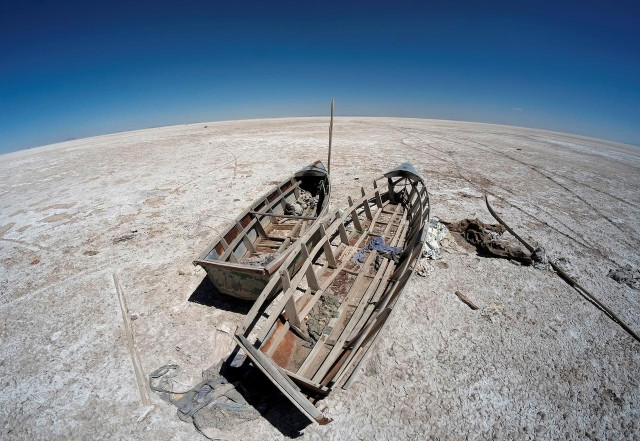Climate financing – the need of the hour
Steps required to generate financial resources to mitigate effects of climate change

Representational image. PHOTO: REUTERS
This devastating impact has come with the warming of temperatures by just 1°C above pre-industrial levels. Recent Australian bushfires are a testament to the fact that climate change is an undeniable reality.
Although every country is affected by the global climate changes, some countries are more vulnerable.
A recent briefing paper titled “Global Climate Risk Index 2018” shows Pakistan occupying the seventh position among the countries most affected by the extreme weather events from 1997 to 2016. This requires immediate financing to take steps to mitigate the effects of climate change.
Climate financing refers to local, national and transnational financing drawn from both public and private sectors at the national level as well as external sources to finance the requisite steps to ensure minimum damage to the economy and livelihoods.
All important conventions are aimed at addressing climate change such as the Kyoto Protocol and the Paris Agreement, which call for financial assistance from parties with more resources to help those that are less endowed and more vulnerable.
Resilient infrastructure and potential gains
What does climate-resilient infrastructure entail? These include renewable energy, low-carbon cities, energy efficiency, sustainable forest management and climatesmart agriculture.
The World Bank estimates that investment in resilient infrastructure in developing countries could deliver $4.2 trillion over the lifetime of new infrastructure.
Investing in climate-resilient infrastructure is hugely profitable - an investment of $1, on average, yields $4 in benefits. Infrastructure resilience would also ensure that costly repairs are avoided, which minimises the wide-ranging consequences of natural disasters for the livelihoods of people.
Climate-resilient infrastructure also creates huge investment opportunities around the world, especially in emerging economies.
The International Finance Corporation, part of the World Bank Group, has estimated that climate investment opportunities total $23 trillion in emerging market economies by 2030.
The report also states that development of climate-resilient infrastructure creates an investment opportunity of $2.5 trillion in India and Bangladesh, key South Asian economic players.
This also creates huge opportunities for investment in Pakistan. Pakistan is amongst the countries that signed the Paris Agreement in 2015.
Although Pakistan contributes 0.43% to the global greenhouse gas emissions, it is amongst the top 10 countries in the world affected by climate change.
A good initiative taken in a number of developing countries is the use of concessionary finance such as climate investment funds. These funds will accelerate the point at which renewables become cost competitive with fossil fuels.
In some cases, they have fasttracked the critical tipping points – between the use of renewables and fossil fuels – by up to four years. Concessionary finance has been recognised as a secret recipe for accelerating development of lowcarbon technologies in emerging economies. Development finance institutions can play a key role in lending concessionary capital to projects in non-OECD countries at low interest rates.
To conclude, just like any other sector of the economy, climate financing needs regular introspection. This requires necessary steps to generate and make available financial resources to undertake climate initiatives on a regular basis.
Moreover, not only is the availability of resources important but also ensuring that adequate and effective steps are taken for putting those resources to their intended use is crucial.
THE WRITER IS A DOCTORAL CANDIDATE AT THE BARTLETT, UCL



















COMMENTS
Comments are moderated and generally will be posted if they are on-topic and not abusive.
For more information, please see our Comments FAQ